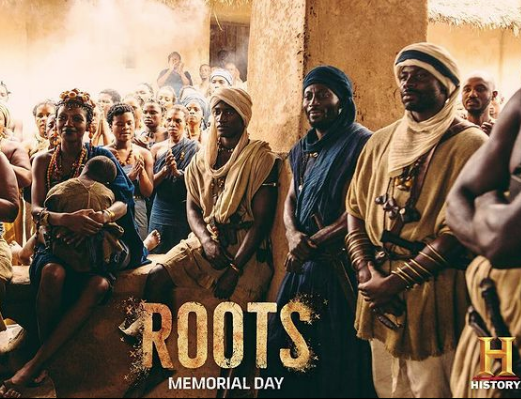Movie producer Will Packer is clear on two key components of his success: how to entertain his audience and why depicting the traumas of Black people will not be part of his projects moving forward.
In 2016 Packer helped America revisit its painful history of slavery by remaking the miniseries “Roots.” Packer’s take on the series, inspired by Alex Haley’s 1976 book “Roots: The Saga of an American Family,” was his first and only foray into developing content exploring that part of Black history.
“I wanted a younger generation to know the stories of Africans coming over to America, but it was painful,” explained Packer to the hosts of “The Real” during an April 22 interview.

Since then the man behind box office hits such as “Stomp the Yard” and “Girls Trip” has made a conscious decision to stray from telling stories of the Black community’s deeply rooted pain.
“I said to my team and myself and everybody around me at the time, this is it. I’m choosing not to go back and tell slave-era stories after this one. I don’t want to do anything that fetishizes or glamorizes or in any way that exploits the pain of the Black experience.”
But given society’s current reckoning with America’s history of racism, movies and shows that depict the realities of Black people have fallen victim to harsh criticism and accusations of unnecessarily stirring up trauma. The Florida A&M University alum says he understands and respects the views of audiences that ultimately dictate what types of stories are told in Hollywood.
“There are a lot of people that are uncomfortable with the way Black trauma is being portrayed in a lot of content. I choose, in the stuff that I create, to not go back and to not show that,” said Packer, whose projects since 2016 have included the 2019 miniseries “The Atlanta Child Murders,” the 2019 documentary about two Black teen sisters who disappeared “The Disappearance of the Millbrook Twins,” the 2020 civil rights documentary “Change Together: From the March on Washington to Today,” and “Blackballed,” a 2020 documentary series about race and sports in America. “We don’t want people to get numb to the trauma. We don’t want people to get used to seeing Black people in pain and treated a certain way.”

Actress Marsai Martin, who worked with Packer on her film “Little,” agrees that Black pain shouldn’t be exploited. With the launch of her production company, Genius Entertainment, Martin made one rule clear: “I don’t do no Black pain. If it’s Black pain, I don’t go for it, because there’s so many films and projects about that.”
While Packer and Martin say they are clear on the types of projects they won’t be seeking to create, Packer also revealed that Georgia’s controversial news voting laws — dubbed by some the start of a new Jim Crow era — will not deter him from filming in the state he now calls home.
Packer cites that relocating projects would punish the thousands of industry workers who rely on movies and shows being filmed in the Peach State.
“Make no mistake, the people that we hire, the people that work in the industry, they didn’t vote for these folks, and these aren’t their laws,” explained Packer. The 47-year-old elaborated by stating that Georgians who disagree with legislators still hold the power of their votes.
“We’re not going to let them get away with trying to take us back to a bygone era.”


